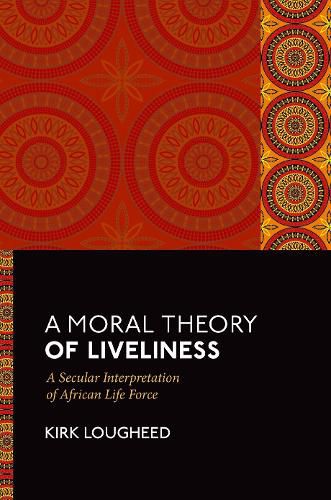Readings Newsletter
Become a Readings Member to make your shopping experience even easier.
Sign in or sign up for free!
You’re not far away from qualifying for FREE standard shipping within Australia
You’ve qualified for FREE standard shipping within Australia
The cart is loading…






A Moral Theory of Liveliness: A Secular Interpretation of African Life Force African life force or vitalism is the view that literally everything that exists, including both animate and inanimate objects, are imbued with an imperceptible energy that comes from God. This book begins by mining current work on life force, which tends to be descriptive, in order to identify its normative implications. Kirk Lougheed then shows that there is a plausible secular description of life force, that he calls liveliness. This can be understood as a force, not substance, and is associated with health, creativity, reproduction, courage, etc. A lack or decrease of liveliness is represented by disease, weakness, destruction, etc. He appeals to liveliness in order to develop a normative theory with an African pedigree that does not rely on controversial metaphysical assumptions. Lougheed demonstrates how this theory can account for a wide variety of commonly held both African and global moral intuitions.
In working out the implications of liveliness as a moral theory, Lougheed compares it extensively to utilitarianism before showing how it better handles some problems for two prominent African normative theories grounded in personhood and harmony. Along the way, he touches on the theory's implications for human dignity or rights, in addition to what it says about the value of non-human animals and the environment. To conclude he explores possible metaethical grounds of both life force and liveliness. Lougheed believes liveliness as a moral theory should be considered as a plausible contender amongst the current African normative theories, in addition to being considered on a more global scale.
$9.00 standard shipping within Australia
FREE standard shipping within Australia for orders over $100.00
Express & International shipping calculated at checkout
A Moral Theory of Liveliness: A Secular Interpretation of African Life Force African life force or vitalism is the view that literally everything that exists, including both animate and inanimate objects, are imbued with an imperceptible energy that comes from God. This book begins by mining current work on life force, which tends to be descriptive, in order to identify its normative implications. Kirk Lougheed then shows that there is a plausible secular description of life force, that he calls liveliness. This can be understood as a force, not substance, and is associated with health, creativity, reproduction, courage, etc. A lack or decrease of liveliness is represented by disease, weakness, destruction, etc. He appeals to liveliness in order to develop a normative theory with an African pedigree that does not rely on controversial metaphysical assumptions. Lougheed demonstrates how this theory can account for a wide variety of commonly held both African and global moral intuitions.
In working out the implications of liveliness as a moral theory, Lougheed compares it extensively to utilitarianism before showing how it better handles some problems for two prominent African normative theories grounded in personhood and harmony. Along the way, he touches on the theory's implications for human dignity or rights, in addition to what it says about the value of non-human animals and the environment. To conclude he explores possible metaethical grounds of both life force and liveliness. Lougheed believes liveliness as a moral theory should be considered as a plausible contender amongst the current African normative theories, in addition to being considered on a more global scale.